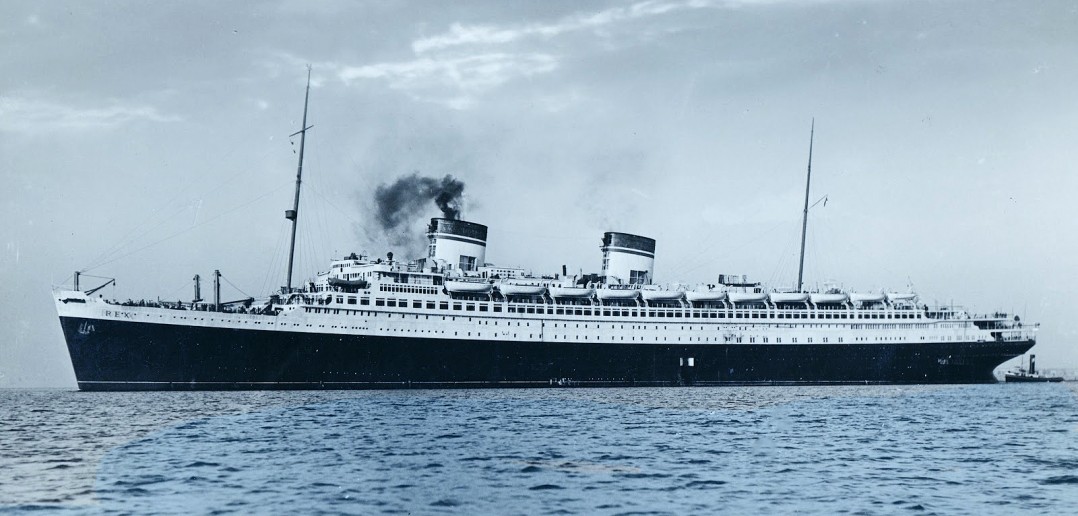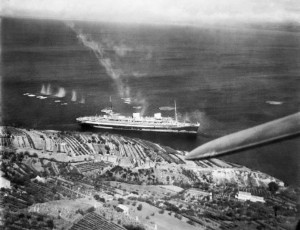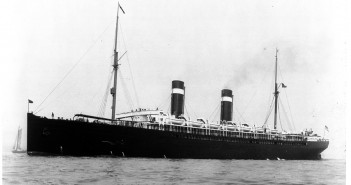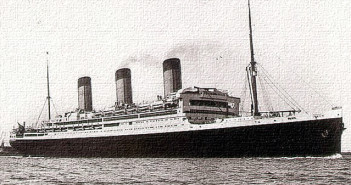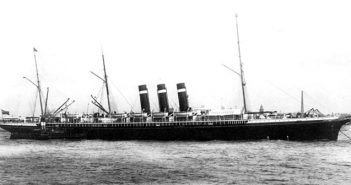On 27 September 1932, Rex departed on her catastrophic maiden voyage.
If not for the Titanic tragedy, Rex’s initial journey might be remembered today as the most horrendous maiden voyage ever undertaken by a top tier ocean liner. No lives were lost, but many reputations took a heavy beating during Rex’s debut journey.
Many of the international celebrities boarding Rex in Genoa believed that the new superliner would break Bremen’s transatlantic speed record on her very first crossing. Premier Benito Mussolini, who was on site to wish everyone a bon voyage, certainly believed so.
Rex actually could have shattered Bremen’s record had fate not intervened. While still in the Mediterranean, her engines failed. The liner sat in Gibraltar for three days waiting for repairs to be completed. Meanwhile, Italian Line saw passenger after passenger depart the stranded vessel. It was hardly an auspicious start for Il Duce’s dream ship.It took Rex until August 1933 before she could gain possession of the Blue Riband with a crossing time of four days and thirteen hours. She held the record until Normandie’s arrival in 1935.
Competition from the new French superliner, as well as from Queen Mary and Bremen, eventually took a toll on Rex’s bookings, which never really recovered from the maiden voyage fiasco.
With the outbreak of World War II, Rex was removed from service and sent back to Italy. Italy and Germany didn’t need a troopship of Rex’s size, so she spent most of the war sitting and waiting. In 1944, as the Allies closed in on Trieste, the Germans finally found a use for Rex. They decided to use the giant liner as a harbor barrier by sinking her. The British, of course, wanted to prevent the blockade, so they dispatched RAF bombers to sink Rex before she could be scuttled.
The bombers arrived in time and completed their task. Rex was blasted into rubble before she could be moved into position. One of the RAF pilots later remembered: “She still looked big and beautiful, actually, and it seemed sad that one had to sink something of that sort.”

Please help keep Ocean Liners Magazine afloat. Any amount will be greatly appreciated. —Regards, John Edwards Editor/Publisher.

